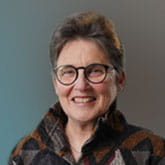In his 2016 paper1 Don Berwick, the former Centers for Medicare & Medicaid Services (CMS) administrator, bemoaned the excessive “quality” measurement that was being imposed on providers, much of which was in his words “useless but nonetheless mandated.”
Dr. Berwick called on CMS, commercial insurers, and regulators working with the National Quality Forum, to commit to reducing (by 50% in 3 years and by 75% in 6 years) the volume and total cost of measurements currently being used and enforced in health care. “The aim should be to measure only what matters, and mainly for learning”1. At the time Dr. Berwick published his Era 3 for Medicine paper, U.S. physician practices in four common specialties were spending, on average, 785 hours per physician per year and more than $15.4 billion dealing with the reporting of quality measures2.
Sadly, four years after the call to reduce redundant and excessive quality measurement, little has been achieved. Physicians continue to be required to participate in multiple quality programs, all of which apply different measures and specifications for reporting and program success. As a result, practices have been focused on “studying for the quality test” rather than on meaningful measurement of the quality of care they are providing. Despite the proliferation in quality measures and quality measurement programs associated with almost all value-based care contracts, very few actually measure patient outcomes in a meaningful way.
The COVID-19 pandemic is proving to be a watershed event for the American healthcare system. A watershed event is defined as a “turning point, the exact moment that changes the direction of an activity or situation. A watershed moment is a dividing point, from which things will never be the same”3. Much has been written on the impact of the pandemic on the rise of telehealth and virtual visits. Many believe that the way patients interact with the healthcare system will never return to the ante pandemic status quo. This shift was enabled by significant rapid regulatory changes that supported relaxation of the privacy requirements for telehealth visits and at the same time created payment parity between in person and virtual visits4. This shift demonstrated the kind of will and action that will be necessary to bring meaningful change to the state of quality measurement as it exists today. It is clear that only an event of this magnitude will be able to catalyze foundational change of this type.
We are hopeful that post COVID-19, CMS will lead the way in simplifying and standardizing the current quality measurement requirements in its programs. To be effective, it will be essential for commercial payers to follow suit, adopting a streamlined uniform national set of measures focused on gauging patient outcomes and practice pattern variation, elements that have proven to be at the core of true quality. If we were able to drive record adoption of telehealth in the midst of a crisis, we certainly should be able to create true quality measurement programs when the crisis is behind us.
1 Berwick DM. Era 3 for Medicine and Health Care. JAMA. 2016;315(13):1329–1330. doi:10.1001/jama.2016.1509
2 http://www.content.healthaffairs.org/content/35/3/401.abstract
3 https://www.grammarist.com/idiom/watershed-moment/
4 https://www.cms.gov/newsroom/fact-sheets/medicare-telemedicine-health-care-provider-fact-sheet
Meet NextGen Ambient Assist, your new AI ally that generates a structured SOAP note in seconds from listening to the natural patient/provider conversation.
Read NowCategories
- Analytics and Reporting
- Regulatory Updates
- Artificial Intelligence (AI)
- Community Health
- COVID-19
- Dental
- Documentation
- Electronic Health Records
- Financial Management
- Health IT 101
- Industry news
- Integrated Care
- Interoperability
- Mobile EHR
- NextGen Advisors
- Patient Experience
- Practice Management
- Provider Experience
- Patient Engagement
- Population Health
- Revenue Cycle Management
- Small Practice
- Telehealth
- Value-based Care
